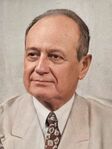1955 Federated Fire Territories general election
| |||||||||||||||||||||||||||||
All 577 Popular Assembly seats in the House of Peers 289 seats needed for a majority | |||||||||||||||||||||||||||||
|---|---|---|---|---|---|---|---|---|---|---|---|---|---|---|---|---|---|---|---|---|---|---|---|---|---|---|---|---|---|
| Turnout | 82.6%, | ||||||||||||||||||||||||||||
| |||||||||||||||||||||||||||||
| |||||||||||||||||||||||||||||
Held on September 1, the 1955 Federated Fire Territories general election gave the Liberal Party a landslide victory over the incumbent Conservative Party. The Liberals gained a substantial majority of 64 Popular Assembly seats, under a new Liberal Party leader Sir Hailey Wood.
Described as part of the 50s Liberal wave; this election spurred massive changes in Fyrish foreign, defence, and domestic policy. The departing Watt administration held office for three consecutive terms, a massive achievement, but was hallmarked by scandals and defence scares. Wood famously led a campaign with these Conservative failings at its centre, playing public fears to promote an end to the bashful foreign policy of the time.
Campaign
Under Sir Hailey Wood, the 1955 Liberal Party manifesto sought to exploit Conservative failings. Chiefly, the disastrous Great Lake war, the Nuclear gap, and the now unpopular parity policy. Wood described the changes as "the final push" during an interview, in which he presented the Liberal manifesto. These areas identified by Wood proved eminently popular with the public, who were distraught following the recent disastrous Great Lake war summer offensive. Generally, fears of a resurgence in Casaterran determination drove public fears, upon which Wood intelligently played. The manifesto changes principally amounted to pledges for extensive public work programmes, expanded defence capabilities, and a renewed foreign policy.
Led by Right Lord Sir Arnulf "Watt" Walter, the Conservative Party suffered significant policy division under the Liberal campaign. Watt's efforts primarily focussed on maintaining party cohesion, causing him to miss opportune moments to respond to Wood's allegations of Conservative failure. Watt maintained the Conservative manifesto ardently, stressing that the party should "safeguard our interests within the global community responsibly". However, Watt's position became untenable following the leak of the 1950 Study on Atomic Warfare report. The Watt administration had previously buried the report, fearing its incendiary nature. Undoubtedly, the report, however flawed, created further division within the Conservative Party and served to fuel public outrage to Wood's benefit.



